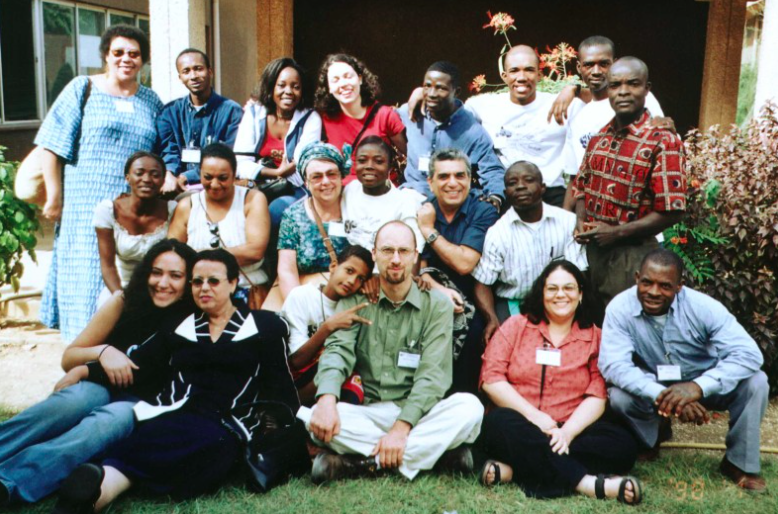
Sacrifice
 The concept of sacrifice is integral to religion. Like other religious concepts it has undergone transformation over the ages. The concept of sacrifice was integrally connected with religious ritual. For example, animal sacrifices were widespread in ancient times. The practice gave way in Judaism (after destruction of the Temple) and in Christianity and other faiths to new ritual practices. For Christianity, the theme of sacrifice becomes focussed on the cosmic cycle of life, death and rebirth, much as in the ancient Egyptian myth of Isis and Osiris. Of Christ’s sacrifice Bahá’u’lláh writes:
The concept of sacrifice is integral to religion. Like other religious concepts it has undergone transformation over the ages. The concept of sacrifice was integrally connected with religious ritual. For example, animal sacrifices were widespread in ancient times. The practice gave way in Judaism (after destruction of the Temple) and in Christianity and other faiths to new ritual practices. For Christianity, the theme of sacrifice becomes focussed on the cosmic cycle of life, death and rebirth, much as in the ancient Egyptian myth of Isis and Osiris. Of Christ’s sacrifice Bahá’u’lláh writes:
Know thou that when the Son of Man yielded up His breath to God, the whole creation wept with a great weeping. By sacrificing Himself, however, a fresh capacity was infused into all created things. Its evidences, as witnessed in all the peoples of the earth, are now manifest before thee. The deepest wisdom which the sages have uttered, the profoundest learning which any mind hath unfolded, the arts which the ablest hands have produced, the influence exerted by the most potent of rulers, are but manifestations of the quickening power released by His transcendent, His all-pervasive, and resplendent Spirit.[1]
Bahá’u’lláh here affirms the transformative impact of Jesus’ life and sacrifice. Even today, two thousand years later, its effects are everywhere. It is a simple and undeniable instance of cause and effect. Abdu’l Baha expands on this theme, noting that the sacrifice of Christ has both an inner and outward aspect.
But Christ, Who was the Word of God, sacrificed Himself. This has two meanings—an outward meaning and a true meaning. The outward meaning is this: Since Christ intended to promote a Cause that entailed the education of the human race, the quickening of the children of men, and the enlightenment of all humanity, and since promoting such a mighty Cause—a Cause that would antagonize all the peoples of the earth and withstand the opposition of every nation and government—was bound to bring about the spilling of His blood and to lead to His crucifixion and death, therefore at the moment He revealed His mission He offered up His life, welcomed the cross as His throne, regarded every wound as a balm and every poison as sweetest honey, and arose to instruct and guide the people. That is, He sacrificed Himself that He might bestow the spirit of life, and perished in body that He might quicken others in spirit.
However, the second meaning of sacrifice is this: Christ was like a seed, and this seed sacrificed its form so that the tree might grow and develop. Although the form of the seed was destroyed, its reality manifested itself, in perfect majesty and beauty, in the outward form of the tree.[2]
We see her both a material dimension and a truth about the nature of the spiritual world. Such concepts assist us understanding the fundamental nature of religion – how it unfolds in the world – how people of no apparent power or influence – catchers of fish – come to be quickeners of humankind and determine the course of the future.
Another way of understanding sacrifice is explored in the series of courses offered by the Ruhi Institute. In the second course “sacrifice” is understood as the giving up of what is less good so that we may attain to what is better. We see this idea in the Bahá’u’lláh’s Hidden Word below:
Be not content with the ease of a passing day, and deprive not thyself of everlasting rest. Barter not the garden of eternal delight for the dust-heap of a mortal world. Up from thy prison ascend unto the glorious meads above, and from thy mortal cage wing thy flight unto the paradise of the Placeless.[3]
(This article is the 99th in a series of what I hope will be 200 articles in 200 days for the 200th anniversary of the birth of Bahá’u’lláh. The anniversary is being celebrated around the world on 21 and 22 October 2017, The articles are simply my personal reflections on Bahá’u’lláh’s life and work. Any errors or inadequacies in these articles are solely my responsibility.)






